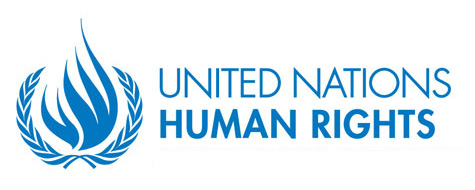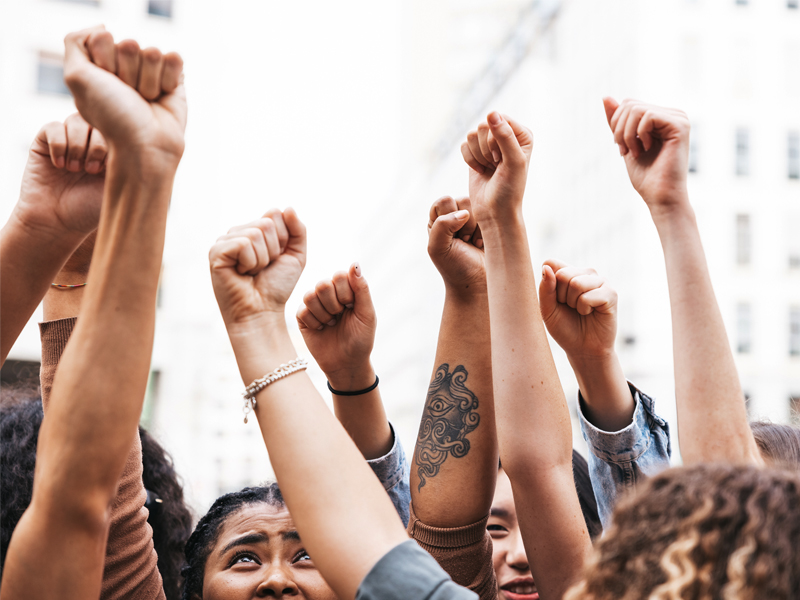Human rights are inherent to all human beings. They are defined and established in more than 80 international legal instruments and define the fundamental protections of human dignity, needs, and freedoms, such as food, housing, privacy, personal security, and democratic participation. Since the adoption of the Universal Declaration of Human Rights (UDHR) in 1948, the responsibility to protect human rights has primarily fallen on governments. Beginning in the early 2000s, however, it became increasingly clear that the freedoms enshrined in the framework could also be violated—and promoted—by the private sector.
In 2011, the UN Human Rights Council unanimously endorsed the UN Guiding Principles on Business and Human Rights (UNGPs), the first international instrument to assign companies the responsibility to respect human rights.
The UNGPs state that companies must refrain from negatively impacting rights even when governments are failing to create or enforce necessary laws and that victims of corporate abuses must have access to effective remedy.
As part of this responsibility, the UNGPs require companies to actively identify and manage the negative human rights impacts that they may cause directly and those to which they contribute through their business practices and relationships. There are several key actions a company can take as part of this due diligence cycle:
- Conduct a human rights assessment to determine which potential human rights impacts are most salient to their business
- Develop a human rights policy to communicate expectations to stakeholders and business partners
- Ensure there is a robust stakeholder engagement process in place to support ongoing monitoring of potential or actual impacts and drive proactive action or remedy
The actions of businesses can affect people's enjoyment of their human rights both positively and negatively. However, it is important that the priority for any business is to avoid, mitigate, and remedy its contribution to potential negative impacts.
Top Human Rights Risks
1: Supply Chain and Raw Material Sourcing
Businesses can contribute to advancing human rights in their approach to working with suppliers. Raw material sourcing is a high-risk sector that is prone to human rights violations due to the opacity of raw material value chains and the complexity of the trade (e.g. through brokers). Human rights impacts can manifest in the form of child labor employment, poor working conditions, and the exploitation of migrant workers. The extraction of raw materials often occurs in conflict-affected areas, which can result in severe community impacts, humanitarian crises, and forced evictions.
2: Freedom of Association and Collective Bargaining
Industrial manufacturers are often located in countries where freedom of association is not guaranteed. In many countries, independent unions are not only rare but can be outwardly discouraged or considered illegal. The ability to freely join a workers' union or association is the primary catalyst for fair working conditions. Employers should encourage workers to voice their concerns and ensure they can access effective means of collective bargaining, whether through a union, workers' council, or employee association.
3: Business Relations and Contractors
Industrial operations and projects often involve numerous business partners and large contracted and sub-contracted activities. The ecosystem of actors can multiply the potential layers of human rights impacts. For example, contractors may lack training and the right management systems to ensure a safe and healthy environment. They can outsource services to external labor agencies that do not uphold human rights practices. Even when business partners, contractors, and suppliers work on the premises, supervision tends to be minimal, with a focus on occupational health safety and anti-corruption. Without proper human rights due diligence and ongoing monitoring of business partners, these interactions can translate into severe impacts, ranging from the employment of minors to accidents at work, forced labor, and violence in the workplace.
4: Working Conditions (Wages, Hours, Benefits, Accommodation)
Every worker has the right to a just and living wage. In countries with weak labor regulations, workers may be exposed to working conditions that violate human rights. Most workers in the industrials sector are low to medium-skilled. Low-skilled workers are often stuck in a poverty trap whereby their low pay forces working long hours and overtime to make a living wage. Additionally, workers often rely on the accommodation provided by the employer for long periods of time, with low hygiene and safety standards. The COVID-19 pandemic has exacerbated this dynamic, particularly amongst migrant workers, who may have been prevented from leaving due to border closures or quarantine rules.
5: Rights of Vulnerable Groups
Vulnerable groups in employee cohorts or communities are likely to face several disadvantages. Marginalized groups in particular (e.g. ethnic or religious minorities, indigenous peoples, or women) may face barriers to effectively speak out on issues. Companies may need to create an individual approach for these groups. Employees and potential employees may also be discriminated against based on gender, LGBTQI+ status, national origin, ethnicity, language, pregnancy, or a disability. This can manifest in the form of reduced opportunities, pay, and executive representation. In addition, the industrials sector often relies on large migrant workforces who are recruited from abroad (e.g. shipbuilding or project installations). Hiring migrant workers—either directly or indirectly—can inadvertently contribute to human trafficking and forms of forced labor (e.g. through excessive recruitment fees which lead to high levels of debt and/or passport retention).
6: Community Environment and Safety
The manufacturing, transportation, installation, and end-use of industrial products can have severe environmental and safety impacts. The resulting air, soil, water, and noise pollution can have varying health-related consequences on a community. Consultations and community assessments that include social and human rights alongside environmental impacts can be conducted before and during operations. Communicable diseases, such as COVID-19, should also be considered as a potential impact on community health and safety.
7: Land Rights and Indigenous People
Indigenous people have a right to Free, Prior, and Informed Consent (FPIC) for decisions that affect them. Typically, the property rights of Indigenous people are unclear due to legislation and associated bureaucratic processes that discriminate against minority populations, historical conflict, resettlement, or customary land-use practices. In low-income countries, opaque systems of land lease and concessions can further complicate the issue. Without clarity on who are the land rights holders, companies are at risk of failing to appropriately consult relevant communities.
8: End-Use Impacts
Companies may contribute to or become associated with negative human rights impacts via their customers. For example, when the end-users of products (e.g. heavy machinery, vehicles, or equipment) participate in business activities that negatively impact rightsholders. Customers can use equipment in (legal or illegal) forestry, mining, construction, or other operations that negatively impact property rights, livelihoods, or the health of local communities. Risks may be heightened in conflict-affected or occupied areas. In the case where it is reasonable for a company to have known about the increased level of risk—for example, by providing services to organizations with challenging human rights records (e.g. certain governments, politically compromised organizations, companies violating human rights)—they can be considered as complicit to and associated with these behaviors.
9: Occupational Health and Safety
Companies must ensure safe and healthy working conditions for all employees, contractors, and business partners throughout their operations. Workers may be at risk due to hazardous and strenuous tasks, long working hours, inadequate safety equipment or controls, or the nature of repetitive tasks. Failure to ensure adequate workplace health and safety measures, as relates to COVID-19, may lead to impacts that are not always remediable, such as loss of life or other physical harms. Most industrial manufacturers make safety their top priority, due to the degree of severity of the accident and potential long-term health effects.
10: Access to Remedy
Access to remedy is a fundamental right under international law. The lack of an effective remedy for individuals and communities who suffer human rights abuses directly or indirectly related to company actions is a serious concern. Industrial operations and projects can impact the whole spectrum of human rights as we have seen above—therefore, it is critical to set up an assessment and remedy of negative impacts. Companies can have clear operational grievance mechanisms to help identify negative impacts, provide a remedy, and cooperate in government-led initiatives or other third-party mechanisms. These mechanisms should be accessible to employees, third-party workers, and communities, and adapted to local circumstances.
Top 3 Opportunities for Positive Impact
1: Decent Accommodation
Industrial operations often involve employee and contractor accommodation on site due to project-based work in remote locations. Companies can ensure that accommodation meets safety requirements and that all employees can live in a healthy, safe, and comfortable environment. Accommodation can either be directly managed by the company or if provided by a third party, closely supervised to ensure it meets safety and health standards.
2: Standards in Transport and Logistics
Transport and logistics providers are often large suppliers to the industrials sector as they transport machinery and materials locally and globally. However, conditions of transport workers and seafarers often fall under the radar. When managing large transport contracts, companies can connect to human rights and safety requirements and incentivize the adoption of the UNGPs in a sector which can be on the sidelines of public scrutiny but at the center of global trade.
3: Combat Bribery and Corruption
Companies operating in countries with high levels of corruption face risks that their employees and business partners may act in unethical ways when interacting with government bodies and/or non-government actors. These acts are inherently human rights violations, as they skew government attention and resources away from the needs of the people they are entrusted to serve. Companies can uphold strict ethical requirements in collaboration with peers and other companies through initiatives such as the Maritime Anti-Corruption Network.
Top 3 Emerging Human Rights Issues
1: Future of Work and Technology
Automation and the almost all-encompassing use of technology and artificial intelligence (AI) are already changing the industry with several benefits to production and safety. However, companies will need to prepare for the future, as their workforce may become obsolete and so will require upskilling into new job positions. The use of technology and AI will also require a greater understanding of associated human rights risks to privacy, freedom of expression, and security of both employees and stakeholders at large.
2: Business Resilience and Human Rights
COVID-19 has shown the unparallel impacts that a global pandemic can have on business and human rights. Climate change is undeniably the next crisis and will lead to severe events on a global scale, like droughts and natural disasters, which are likely to affect human rights in global value chains, leading to loss of livelihoods, migrations of communities and workers, and severe harm. Companies should seize this moment to build strong business resilience and contingency strategies that incorporate long-term human rights considerations to ensure business continuity. Companies in heavy industries and manufacturing are often placed at strategic points in the energy and infrastructure value chains and can become crucial players in the just transition to a net-zero carbon economy, as well as play a key role in transitioning to circular innovation in materials and infrastructure.
3: Gender and Diversity
Industrial manufacturers are historically a male-dominated sector, but this is slowly starting to change. Gender and diversity will need to be at the front of any human rights strategy to drive gender equity and ensure high resilience based on diverse talent.
Let’s talk about how BSR can help you to transform your business and achieve your sustainability goals.




